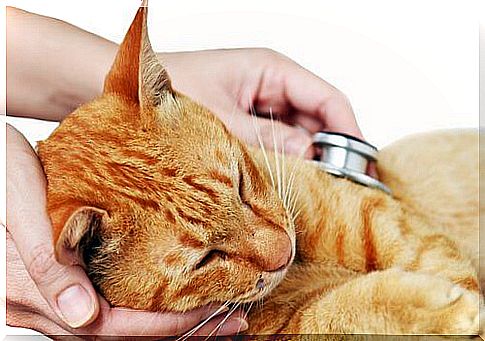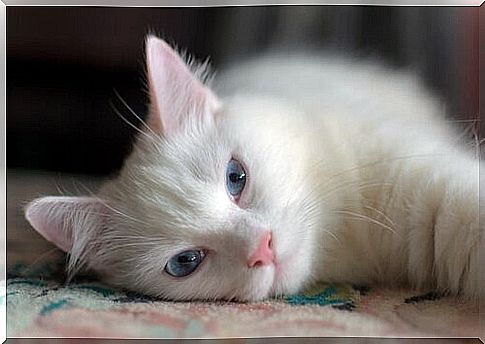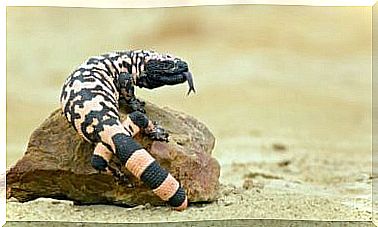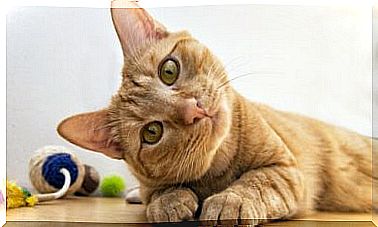Epilepsy In Cats: What You Need To Know

Although infrequent, epilepsy in cats is a brain disorder that must be treated properly as it is of a certain severity.
Below we tell you about the causes, symptoms and, above all, how to proceed in the case of epilepsy in cats.
Causes of epilepsy in cats
Seizures are triggered when an excess of electrical activity is produced in a group of neurons. When this happens, the feline suffers from alterations that can damage its movements, behavior and level of consciousness.
Epilepsy in cats can have many possible causes. Among them we mention diseases, brain injuries, abnormal brain development, etc. Very often, however, the cause remains unknown.
There are three types:
- Idiopathic : epilepsy is the primary disease, there are no underlying diseases that cause the seizures.
- Caused by a secondary disease : in this case the seizures are due to other pathologies.
- Cryptogenetics : When there is a suspicion that there is some other underlying disease causing the seizures but cannot be identified.
Symptoms of epilepsy in cats
Epilepsy can occur in cats of all ages. The idiopathic one, however, usually affects the youngest specimens (on average three and a half years old), while that caused by other pathologies occurs in animals of about eight years old.

Although the main manifestation of this disorder are spontaneous and recurrent seizures, there are other signs that may indicate that a cat may be suffering from this disease. Eg:
- Strange behaviors
- Muscle spasms
- Difficulty in ingesting food or moving around
- Lack of balance
- Hyperventilation
- Hyperactivity
- Nervousness
Keep in mind that attacks, in general, last seconds or, at most, a few minutes. After producing them, the cat’s brain returns to normal.
How to act in the face of an epileptic seizure
It is important to know what to do if your cat has a seizure. Otherwise the picture could get complicated. The most important thing is to try not to lose your temper in order to assist the cat in the best possible way.
Among the actions that can be carried out is to move furniture or other objects that can injure the cat and put pillows around him to protect him.
Also keep in mind that any stimulus can make seizures last longer. For this reason it is better not to touch it, while it may be useful to turn off the lights, reduce noise and move people and animals away from the place. If the veterinarian has indicated a drug to be taken in an emergency, it should be applied rectally.
Things not to do
Here are some actions you shouldn’t take while your cat is having a seizure:
- Avoid sticking your pet’s tongue out for fear that it will swallow it. This is just a myth regarding epilepsy that won’t happen. If you try to do this, the most likely thing is that your pet will bite you.
- Do not support the cat’s head, as this could cause a neck fracture.
- Do not give him food, water or drugs by mouth, as the animal runs the risk of suffocating.
- Do not cover it with a blanket to prevent the risk of asphyxiation.

Once the attack has passed, the cat must be placed in a quiet and safe place so that it can recover. Also, even if the animal appears to be hungry or thirsty, you must allow some time to pass before feeding it. In fact, swallowing problems may persist.
Preventive measures
If your cat is epileptic, it is important to take some preventative measures at home to prevent the cat from being injured if a seizure occurs. Eg:
- Make him stay away from the stairs
- Place protective nets on windows and balconies
- Make sure that the places where he spends most time are free of objects that could hurt him.
It is also essential that your pet does not suffer from stressful situations that could trigger an attack. And, of course, the ideal would be that he didn’t leave the house.
Treatment of epilepsy in cats
If you suspect that your cat may be suffering from epilepsy, it is important to take him to the vet urgently.
A correct diagnosis is essential to be able to treat the animal in the most adequate way possible.
After the studies indicated by the professional, it will be assessed whether it is necessary to medicate the feline, based on the frequency and intensity of the convulsions suffered.
Obviously, if the triggering cause is another pathology, it is essential to act on the latter. In any case, the important thing is to provide your pet with the best possible quality of life.









